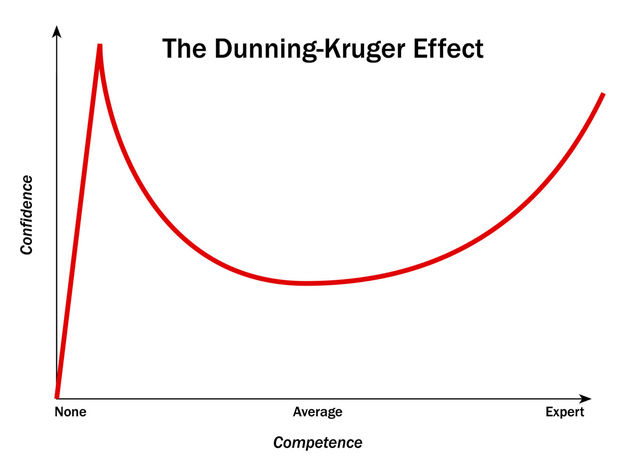Jeff Bezos, Elon Musk and others have been touting the multitudinous advantages of colonizing the Moon and Mars. The scientific idiocies of these proclamations are so outlandish that I will not bother commenting on them. But, at the same time, Stephen Hawking’s name has come up in the context of Mars colonization.
Dr. Nate Hagens uses Hawking’s ideas about Mars colonization in his Reality 101 course at the University of Minnesota to illustrate the point that human society is composed of tiny islands of high competence floating in a vast sea of narratives.
Let me start from quoting a recent email by JDW on the subject of human escape to outer space:
“Without a synthesis which shows how different narratives relate to one another, people are free to use “verbal logic” to create properly-constructed sentences which don’t correspond to possible realities. “Verbal logic” is nearly an oxymoron, because there’s not much in the way of error-correction built into it. Anything that “sounds good” makes the cut, and this gives the competitive advantage to propositions that sound extra good, because there is an ongoing bias in favor of exaggerated and supernormal claims.
Hawking certainly didn’t use verbal logic to understand black holes; that was largely visual/mathematical thinking. But he shifted into verbal thinking in his thoughts about Mars, and probably in most other things in his life… as most people do. His functional incompetence was clearly not apparent to him. The nature of intelligence, expertise, reductionism, IQ, etc. seem greatly skewed these days in favor of quasi-idiot-savant experts who are lifted into prominence by being apparently right about some very narrow slice of reality.
There’s currently not much status which attaches to synthesis, because synthesis is antithetical to most extremely stimulating beliefs about reality and the future. And this won’t change anytime soon. We are left with a choice between offering a bummer message nobody really wants to hear, versus crafting a message that has utility to move society toward chosen goals.”
In translation, a complete scientific theory – with a self-consistent framework of assumptions (axioms), theorems, equations and conclusions – could be wrong, but it is relatively easy for other scientists to spot its deficiencies and propose counter-examples. Thus, Hawking and many other scientists were/are on very solid ground when we develop and defend our theories that may hugely impact your lives. In social (pseudo)sciences, economics, and in politics, the scientific foundation does not exist or is weak, and it is exceedingly easy to fall into the trap of “verbal logic.” Even the best of us bullshit occasionally, and we must be careful about what we say and how we justify our claims. To make things worse, general public and government consultants have little or no scientific background, and it is difficult for them to find out what is scientifically right and what is obviously wrong. In addition, today, important news is manipulated on Twitter/Facebook so that no one can determine what is really going on. Have you seen many equations on Twitter?
Here is a complementary snippet from Pedro Prieto, my favorite Spanish engineer and friend. He is quoting an essay entitled “Gente que no quiere viajar a Marte: ensayos sobre ecología, ética y autolimitación” or “People who do not want to travel to Mars: Essays on Ecology, Ethics and Self-Limitation.” Pedro has translated a fragment of the introduction to this book released in 2004 in Spanish:
“They [the Mars travelers] are already here on the boards of directors of corporations, in the ministries and government offices, in the education and research centers, and in the mainstream media…. At first sight, they may appear as normal human beings, but they are Martians who arrived from outer space. You may recognize them because of their deep conviction that humans are not the living beings of this planet, but masters of the universe. So, because they are convinced that they only transit through our planet, they believe they can treat the planet as a disposable object, a “use and throw away” biosphere.”
Apart from this joke, writes Pedro, “People that do not want to travel to Mars…”, is a book that completes Jorge’s “Trilogy of Self-Contempt.” This trilogy started with the book, “A vulnerable world,” where Jorge argues that one cannot be a consistent positivist, if one is not prepared to treat the Earth as a disposable planet, only to escape to the Cosmos later. This escape temptation is expressed by a more ample and complex “anthropofuge” movement, a movement of flight from the human condition that we must take seriously, and which we have to resist.
So beware of this murderous cosmic narrative that justifies Gaiacide, you young impressionable readers.
Let me now continue with a few definitions. The first one is from the priceless Wikipedia:
“In the field of psychology, the Dunning–Kruger effect is a cognitive bias in which people of low ability have illusory superiority and mistakenly assess their cognitive ability as greater than it is. The cognitive bias of illusory superiority comes from the inability of low-ability people to recognize their lack of ability. Without the self-awareness of metacognition, low-ability people cannot objectively evaluate their competence or incompetence.
As described by social psychologists David Dunning and Justin Kruger, the cognitive bias of illusory superiority results from an internal illusion in people of low ability and from an external misperception in people of high ability; that is, the miscalibration of the incompetent stems from an error about the self, whereas the miscalibration of the highly competent stems from an error about others. “
Here you might insert your favorite politicians and academics as examples.
Source: Kruger, Justin; Dunning, David (1999). “Unskilled and Unaware of It: How Difficulties in Recognizing One’s Own Incompetence Lead to Inflated Self-Assessments,” Journal of Personality and Social Psychology, 77 (6): 1121–1134.
 |
| A little knowledge is a dangerous thing. Those who have the slightest bit of experience think they know it all. That’s the peak at upper left. Then, with increasing experience, people realize how little they do know, how modest their skills are. Perceptions reach a minimum (center of chart), then slant upward again. Those at the level of genius recognize their talent, though tend to lack the supreme confidence of the ignoramus. This figure and its caption are reproduced from Richard Poundstone, Psychology Today, Jan. 21, 2017. |
Now I need to lay out the leitmotif of this blog:
Energy, actually energy per unit time – or power -, is the essential food and drink of the global superorganism, without which she will shrivel and die. Conversely, the more power flows through a society, the more complex dynamic structures* this society can create. Therefore, knowledge of energy issues informs pretty much everything about the decisions the global human amoeba will make in the next twenty years.
* You decide whether these structures are [necessary, convenient, unnecessary, harmful] .
Just yesterday, in another email exchange, Jason Bradford observed:
“As a biological analogy let me throw this out and see if it sticks. Some vertebrates evolved as homeothermic endotherms [animals that are capable of the internal generation of heat]. Think of humans and birds. These creatures maintain a nearly constant body temperature and so demand a high baseline metabolic rate. To me, this is what the Industrial Civilization is like. The Maximum Power Principle is at work here because with such a metabolism you can get work done any time of the year, or even day or night. This is an energy-demanding way to live. Other vertebrates are ectotherms [animals dependent on external sources of body heat], or if they are endothermic they take time off now and then during lean seasons or times of day, such as hibernation and torpor states. This means they don’t bother to do work all the time and are less energy demanding. This is what I imagine the preindustrial way of life to be like. It is not as power maximizing and is more energy efficient and conserving. What I believe we need to be doing is comparing the energy systems of different types of human civilization—the endothermic and the ectothermic—and stop asking which endothermic way of life is most efficient.”
In translation, if we want to live in more harmony with nature or be more “sustainable,” we must behave more like the ectothermic animals and slow down at times. Says me, a creature that incessantly works on something around the clock, including evenings and weekends.
To conclude this Part I, in the context of “Big Energy,” Kruger and Dunning imply that the energy-ignorant people – that is almost everybody in the “developed” countries – are vocal on issues they do not comprehend, because they haven’t developed an internal yardstick to measure just how ignorant they are. Today, they feel empowered by their Facebook posts that are read and supported by other ignoramuses. The arrogant energy “experts” – not geniuses – on the other side, routinely overestimate their ability to predict the future, and confuse their self-important logorrheas with divine powers. (Logorrhea is pathologically excessive and often incoherent talkativeness or wordiness that is characteristic especially of the manic phase of bipolar disorder or of presidential interviews on Fox & Friends or CPAC.)
 |
| From Mike H. |
By the way, I really try hard not to hallucinate. In Part II, I will show you how naive it is to think than the “New Green Deal” will allow us to continue our current lifestyles, just by other greener means. This, my friends in the developed, power and resource hogging countries is impossible.







